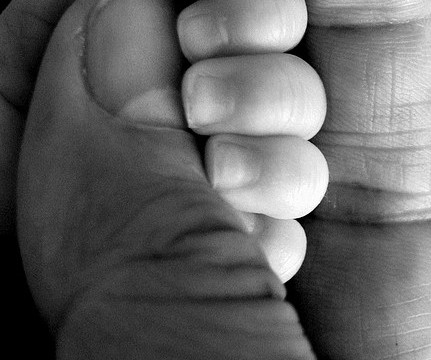Bonding is Crucial for Mom and Baby
Women who find out they are pregnant may daydream about days spent gently rocking in a glider, snuggling with their newborn baby. Unfortunately, for some women, this dream doesn’t come true immediately after the baby’s birth. Bonding is crucial for both mom and baby after birth; however, there are a few reasons why moms and babies may have a hard time bonding during infancy.

1) When the Baby is Placed in the NICU
If a baby is transferred to another hospital due to an emergency after birth, the mother may be separated from the baby until she is released from her hospital. In other cases, the baby may be placed in the NICU at the hospital the mother is at. The most important thing for the mother to do is to see her baby as soon as possible. If allowed, she should hold the baby on her chest and provide as much skin-to-skin contact as possible. If she cannot hold the baby, she can sing, talk and touch her baby to promote bonding.
2) When Mom Has a Medical Complication
Mothers who face a medical complication after birth may be temporarily separated from their baby. If the woman requires surgery, she and baby may be separated until she wakes up from anesthesia. The mother should hold and breastfeed her baby as soon as possible. Plenty of skin-to-skin contact and wearing a baby carrier can help create a bond between mom and baby.
3) Moms in Prison
According to the Women’s Prison Association, as many as 5-10,000 women enter prison while they are pregnant every year. Women’s prisons in South Africa allow the mother to keep her child at the facility with her, and a growing number of American prisons are doing this, as well. In the US, the woman may be able to keep the baby for 18 months. Some prisons offer community programs, special classes and events so the mother can become educated on parenting and see her baby. Not all prisons offer these programs, which makes it difficult for a mother to bond with her baby. In the best case scenario, the mother has a supportive person who will take care of the baby and keep her updated through phone calls and by mailing letters and pictures. Unfortunately for some women, the child may be placed in foster care or parental rights may be severed.
4) When Mom is Facing Deployment
While moms in the military do receive maternity leave, they can be deployed just four months after giving birth to a baby. While they are able to initially bond with their baby, they may struggle with how to maintain that bond while they are away. The woman’s spouse can upload videos online and mail the mom pictures, to help her remain connected to the baby. Some women suggest recording their voice narrating a book for the child. The tape can be played often, so the baby can hear his or her mother’s voice.
5) Psychological Issues in the New Mother
Conditions a mother may experience include the baby blues, postpartum depression or psychosis. It is important for both women and their family members to recognize signs of mental health conditions. This can include constant crying or irritability, thoughts of hurting herself or the baby, extreme obsessions or compulsions, delusions or not feeling a bond with the baby after one month. Women should seek treatment from a qualified therapist early, so they can work through the issue and have the opportunity to bond with the baby. Skin-to-skin contact and holding the baby promote security and bonding.
6) Bonding With Your Baby
Experts do agree that bonding is crucial for both the health of the mother and the baby. No matter what circumstance a mother is facing after the birth of her baby, she can help promote bonding by being as close as possible to her baby. Reading, talking and singing can help when the mother cannot physically hold the baby. If the mother must be away, receiving pictures and keeping in close contact with the baby’s caregiver will help the mother continue to feel involved in her baby’s life. Infants depend on physical touch for security and comfort, so it is important for a caregiver to continue to hold and cuddle the baby if the mom cannot be there. The best way to bond is with skin-to-skin contact, so moms should try to touch, hold and breastfeed their baby often.
Thank-you for reading this post. Please feel free to leave your thoughts in the comment section below.
References:
Koup-Larson, S. (2010, March). Bonding with baby isn’t automatic. Retrieved from http://www.metrokids.com/MetroKids/March-2010/Bonding-with-Baby-Isn-039t-Automatic/
Moms, babies get to bond in jail. (2008, May). Retrieved from http://www.msnbc.msn.com/id/24557669/ns/us_news-crime_and_courts/t/programs-allow-moms-newborns-bond-jail/#.Tl8YqKjeySo
Mothers infants imprisonment. (n.d.). Retrieved from http://www.wpaonline.org/resources/publications.htm